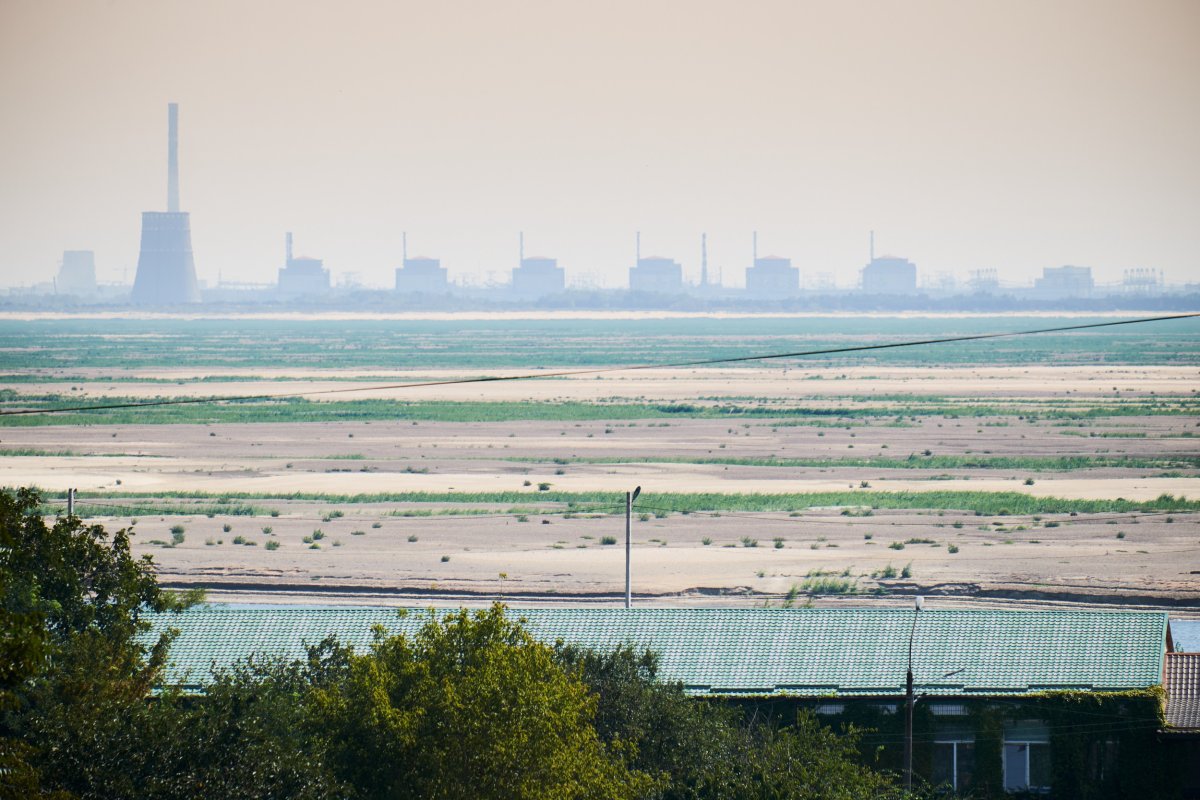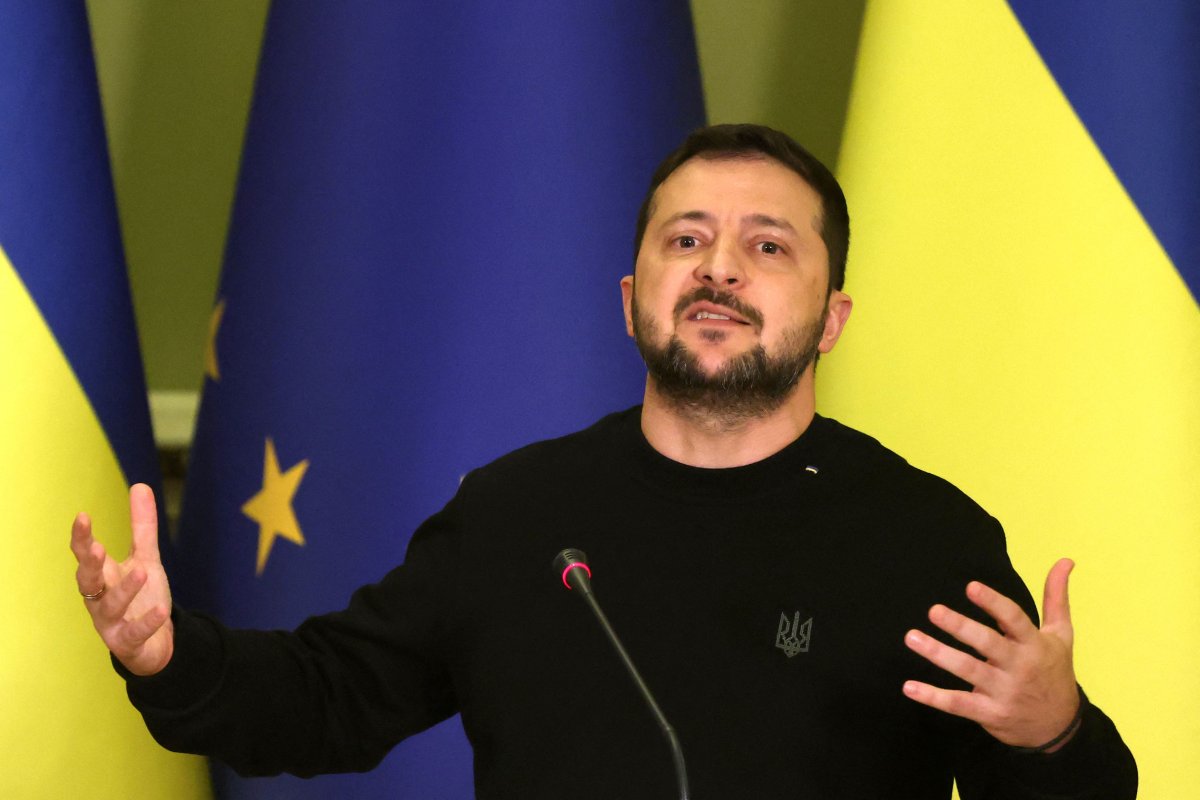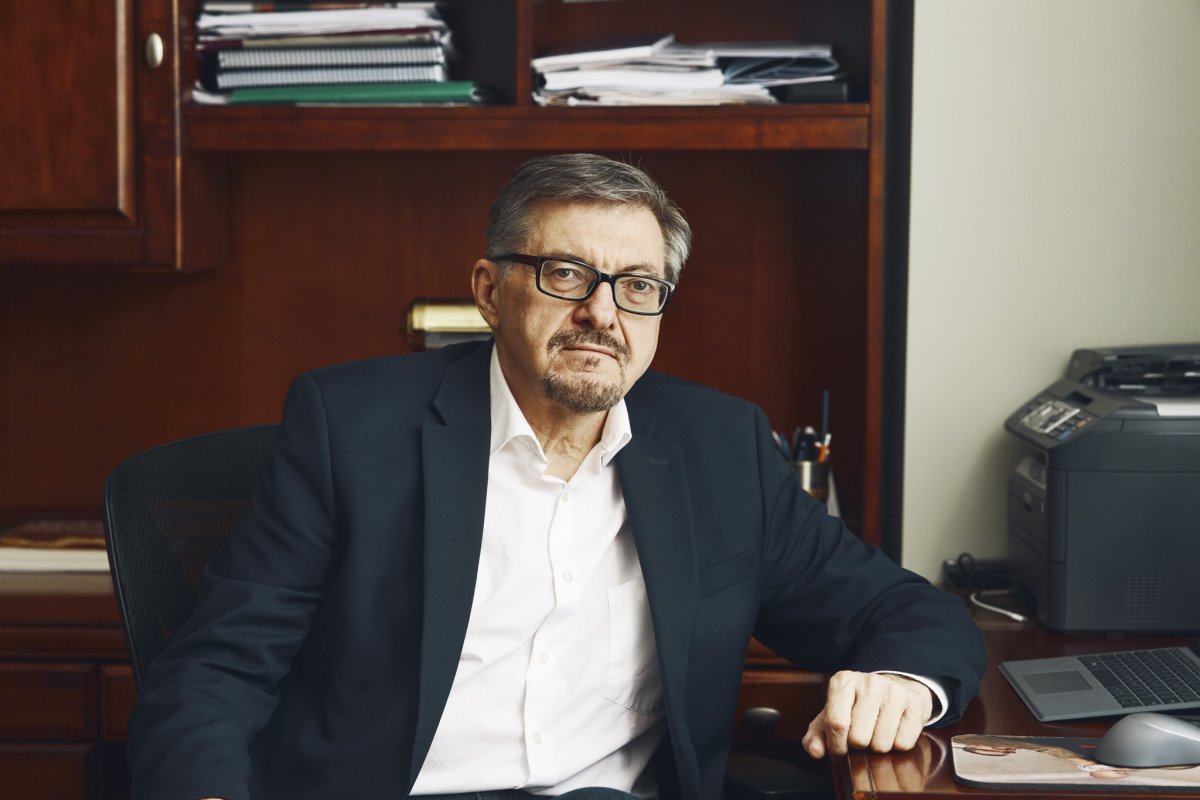The West may focus on Moscow's missile menace from the air when Russia makes veiled nuclear threats, but could atomic assets on the ground pose the same danger?
Kyiv said that a Russian drone attack on Ukraine's western Khmelnytsky region on October 25 had targeted a nuclear power plant, reigniting fears of the consequences of having a war raging in a country that is home to 15 atomic power stations.
At the beginning of their invasion of Ukraine on February 24, Russia seized Chernobyl, the site of the world's worst nuclear disaster, but by April, Ukraine's state nuclear company Energoatom said the occupiers had left.

No such reprieve was given to the Zaporizhzhia Nuclear Power Plant (NPP)—Europe's biggest. Located in Enerhodar, the site in peacetime would be treated with kid gloves, but since its seizure by Russia in March 2022, has resounded to tank and missile fire and claims of drone attacks.
The plant has six Soviet-designed water-cooled and water-moderated reactors containing Uranium 235, four of which are shut down with the other two in so-called "hot shutdown" mode, according to the Russian operator of the plant. The International Atomic Energy Agency (IAEA) has repeatedly said it is lucky that there has been no accident at the plant where nuclear safety remains fragile.
"There was a war happening on a nuclear site," Serhii Plokhy told Newsweek. He grew up in Zaporizhzhia and is author of Chernobyl: History of a Tragedy and Atoms and Ashes: A Global History of Nuclear Disaster. His latest book The Russo-Ukrainian War has just been released in paperback. "As long as Zaporizhzhia remains under Russian control and as long as it remains in a zone of warfare and is relatively close to the front lines, the danger is there," Plokhy said, even if the risk has subsided in recent months.
Russia's Nuclear Rhetoric
Ukraine and Russia trading accusations about endangering the Zaporizhzhia NPP signals a shift in the narrative about the nuclear threat that has persisted since the start of the war. The prospect of Russia's weapons moving beyond conventional ones has worried Western leaders since Vladimir Putin put his nuclear forces on high alert, even if such arms would offer no advantage to the Russian president.
But despite florid nuclear threats by ex-president Dmitry Medvedev and Kremlin propagandists, world leaders are less spooked, Plokhy said. This is "partly because the West refused to be scared out of its mind but, second, because countries like China and India are not particularly crazy about Russia's rhetoric."

While Russia is no longer an economic superpower, "it continues to be a nuclear superpower, and that's the weapon that the Russians have," Plokhy said, noting how this has shaped Western caution in its supply of weapons to Ukraine.
However, Plokhy added that he believes the main threat in this war, and potentially in future wars, comes not from nuclear weapons, but nuclear power plants being turned into dirty bombs. They would provide the attacker with a plausible deniability that launchable weapons do not possess.
"You can deny responsibility for, quote unquote, an accident happening at the nuclear power plant," Plokhy said, so presenting radiation as a future weapon of mass destruction.
Putin's Empire Plans
The essay Putin released under his name in 2021 "On the Historical Unity of Russians and Ukrainians" presaged his intentions for his full-scale invasion and pointed to the Russian president's view of Ukraine and Russia having one people.
This vision of a one-nation utopia, which reflects arguments made by Nobel laureate and Soviet dissident Alexander Solzhenitsyn in his 1990 essay titled "Rebuilding Russia", failed the test of the Russian revolution and has been destroyed by Putin, Plokhy said.
"I believe that 20th-century tactics and 21st-century weaponry in the battles of Ukraine has already killed the 19th-century idea of the unity of Russians and Ukrainians."
Plokhy added how, since the war started, monuments to Alexander Pushkin, the 19th-century poet considered to be the founder of modern Russian literature, are being removed in Ukraine and the Ukrainian language and identity are being strengthened.
"I can't imagine that all these hundreds of thousands of body bags and crippled and wounded soldiers who come back, bring back the idea that Russians and Ukrainians are the same people," Plokhy said. "That's probably the safest thing to predict in terms of the impact of the war—the end of this utopia."

Ukraine's Morale
The counteroffensive that Ukraine launched at the start of June has been marred by slow progress and hampered by a lack of air cover and formidable Russian defenses. Meanwhile, continued Western and, in particular, U.S. support for Kyiv could be in question as the war grinds on.
However, Plokhy said that morale among the Ukrainian people will probably will last for the first half of next year, during which Kyiv's forces are expected to launch another offensive. "Then a lot will depend on how many weapons Ukraine gets, and whether it gets the sort of weapons that it believes it needs."
Zelensky told Time magazine maintaining the flow of aid from the West, in particular from its biggest military donor, the U.S., is an ongoing fight, especially with the world's attention turned towards the war between Israel and Hamas.
Plokhy's book argues that Ukraine's defiance has unified the West in defying the imperial ambitions of Putin through sanctions and military aid. "But that unity is like a marriage," he told Newsweek. "You have to work on it every day. It's not like you signed the papers last year and the job is done."
He said he believes there was a degree of magical thinking from the West in expecting Ukraine to progress in its counteroffensive that no NATO army would fight—namely with neither the full control of the airspace, nor the jets and long-range missiles Kyiv had called for.
"We now know it was mission impossible, but also our expectations were heightened because everything that Ukraine had achieved during this war was mission impossible," said Plokhy, who is director of the Ukrainian Research Institute at Harvard University.
"The thinking was that the magic will continue," Plokhy added. Now he says the goal is to figure out, "what can we do to bring magic back?"
Uncommon Knowledge
Newsweek is committed to challenging conventional wisdom and finding connections in the search for common ground.
Newsweek is committed to challenging conventional wisdom and finding connections in the search for common ground.
About the writer
Brendan Cole is a Newsweek Senior News Reporter based in London, UK. His focus is Russia and Ukraine, in particular ... Read more





